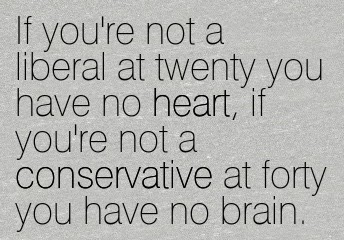If you weren't following this blog in 2012, you may have missed the predictions I made then. Well, fear not, because 2014's predictions are now out. My goal is to meet or come close to last cycle's 97% accuracy. Frankly, anything about 90% is nothing to sneeze at, so I'll set that as my lofty goal. I certainly learned more from the 3 races I got wrong in 2012 than the 94 I got right, which has helped adjust my model.
2014's predictions will be a little more scientific than in 2012. In fact, I learned a few good lessons in and since 2012 that I applied when making these predictions. While my model is based almost entirely on past performance and registered voters, occasionally there are circumstances that might cause a shift in a race, which I held out as long as I did on posting my predictions.
Without further ado, on to the lessons learned...
1. No matter how much I like a candidate, tough races are tough races and districts perform much like the numbers indicate they should.
I admit to weighting races in 2012 generously (and, in the case of some, too generously) for candidates that I particularly liked--something I am trying to avoid in this year's predictions. It helps that I know fewer of the candidates in 2014 as well as I knew the 2012 candidates. In fact, some folks of less than savory integrity and character have used this point as a means to attempt to discredit the results. I didn't actually set out in 2012 to be nearly as accurate as I was, to be honest. It was more a fun, informational post than the eerily accurate predictions it turned out to be. I learned what worked and what to improve, so hopefully this time around is less "opinion" and more "fact". I suppose you could say that 2012 was an accidental test run. Hindsight is 20/20, and I would have been more judicious in my use of "toss-up" and gone with my gut instinct on result in more races in 2012 if I had it to do over.
2. Historical district performance outweighs registration advantages.
Speaking of improperly weighting things, 2012 taught me that registration numbers and district performance numbers are not equal. In 2012, I considered the two to be equally important. The results of 2012 proved that district performance outweighs a registration advantage in a district. Instead of looking at them both primarily to determine the District Ranking for this year's predictions, I looked at performance primarily, and registration secondarily.
3. It has been confirmed to me time and again that Jon Caldera's number one rule (that there is nothing Republicans can't eff up) is even more true in Colorado than anywhere else.
Since there has been very little in the way of leadership change since 2012, I expect equally (or more) dismal results after Election Day for the GOP. Maybe Ryan Call will finally get the hint that if he campaigned for Republicans as strenuously as he did to save his own six figure job, we might not be entirely in the mess we are now. Based on what I've seen come out of State Party this cycle, their number one goal is to elect Cory Gardner, with the secondary goal of re-electing Mike Coffman. While that's nice, that completely ignores the state of Colorado, and specifically the Legislature, where candidates need support much more than Gardner or Coffman do. Of course, there are the puff pieces about Beauprez that started coming out from the State Party
before the primary was over, but that's because it'd be political suicide to "ignore" the top race in the state.
4. Thanks to Redistricting and Reapportionment, Republicans in Colorado are screwed until 2022.
It's not like I didn't know this in 2012, but the results of 2012 proved just how true this really is. Republicans will be very hard pressed to regain control of the House at all this decade. The Senate is easier, but still not easy.
5. There is such a thing as too much data.
After 2012, I started compiling data I had been collecting for over a decade, with over 150 data points for each district, to try and create a predictions model. Using that much data made picking a selected outcome easy, but not necessarily accurate. Rather than
make the mistake of the failed CU Presidential Predictions Model, I decided to focus on the two areas that made my results so accurate in 2012: voter registration and district performance.
6. The biggest difference between my predictions and others is polling and money.
I generally find polling to be a useless waste of money and time unless I can see all the cross tabs on it, and even then, I rarely trust it. There is almost nothing easier to manipulate in politics than polling. Remember that
internal poll that showed Cantor up by 34 points? I'm sure that looked like a good use of money after he got his butt handed to him (12 points!) by someone who spent a fraction of what he did. Do you realize that's a 46% swing from what was predicted by a poll to what actually happened? Of course, that's an extreme case.
This race also serves to prove my money point, which makes it a perfect example.
The candidate with the most money doesn't always win ($5,026,626 to $122,793). Again, this is an extreme case, but the point is this:
poll results and money raised/spent do not determine outcomes of elections. Sure, the money side certainly has an effect on the outcome of a race, and it isn't unimportant, but it is a relatively small piece of the puzzle compared to voter registration and historical district performance. And that is where I drastically differ from anyone else I've ever seen make predictions, because I honestly don't even look at polls or funds raised/spent when determining what I think will happen in a race until after all the other data has been weighed. Variables can certainly swing a race, but 90% of the battlefield is laid in past performance and voting populace.
7. 2013 was a fascinating year.
2013 brought about horrific voting law changes, including same day registration, ridiculously lax residency requirements, and all mail-ballot elections, which will likely drastically change the way elections play out in the future, and probably not in favor of liberty or Republicans. Because of these changes (the significant potential for "vote shifting" and the same day registration parts in particular), I honestly don't know how well, if at all, election predictions can be done going forward. 2014 is going to be an interesting experiment in how this will affect the historical performance of a district.
The one plus of mail-ballot elections is old/inactive voters have finally been taken off the rolls. The number of voters in Colorado has been steadily increasing since 2004 (the first year I have data), which is something you'd expect as the population grows and ages. Until now.
Between November 1, 2012 and August 1, 2014, there are 2.42% fewer overall voters on the rolls. Democrats are down 4.18% of their voters overall, Republicans are down by 2.47%, and Unaffiliateds down 1.1%. Interestingly, Libertarians are at almost 118% of their 2012 number. What effect, if any, this will have in November remains to be seen, but it is a fascinating bit of data.
On the flip side, the recall efforts proved that "unwinnable" seats can be flipped temporarily, even with crappy replacements, when a galvanizing issue is strong and relevant enough (and, again, proving my point about how money alone doesn't win elections). The November 2013 election was also a good sign in Jefferson County, but I wouldn't count those chickens before they hatch. It is yet to be seen how the recalls and November 2013 elections will have an impact in 2014. I fear that they were too long ago to make a big enough difference this year, but we'll just have to wait and see.
8. Simplicity is key (or, Keep It Simple, Sarah).
Rather than list out all the races in the lengthy manner I did in 2012, I'm going to condense the information on "holdovers" (2s and 6s), because they're less interesting from a predictions standpoint as a general rule. There are summary posts coming as well, if you don't want to read the lengthy predictions post.
9. Finally, Nate Silver isn't as good as I am.
Seriously. At least for now. He made predictions in a little over a third of the number of the races I did (which, to be fair, isn't quite an apples to apples comparison anyways because his races were federal, and mine were all Colorado-based, and predominately local races, but just go with me here). His result was a 94% accuracy--which is nothing to sneeze at, don't get me wrong. But, at least for 2012, I can claim to be better than Nate Silver. Yes, this isn't so much a lesson as a personal point of bragging--but be honest, if you bested the "best" in the business, wouldn't you brag about it too?



















